Bright is the town Airbnb ate: welcome to ground zero of the nation’s housing crisis
Forget Byron Bay, Bright has been quietly grappling with the double-edged sword of its own record-breaking popularity. This is the country town where you can have your pick of 600-plus holiday homes, but the new butcher was forced to live in his van.
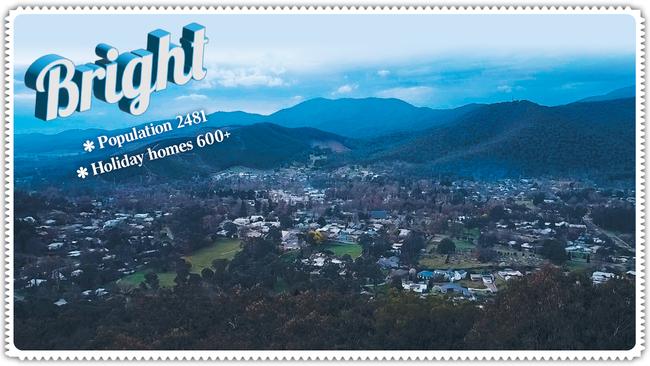
It’s a winter weekday morning and the pretty Victorian alpine town of Bright doesn’t look like ground zero for the national housing crunch.
Visitors and locals cradle their coffees in busy cafes while others pedal along mountain paths laced with frost or stroll beside the clear Ovens River, where trout leap for the sky. It’s an idyllic scene that leads visitors along another well-worn path – to the real estate window – where they will be jolted back to reality.
Forget Byron Bay, population 10,538, with its flashy influencers and buzzing beach scene. While the country was distracted by the post-pandemic explosion in holiday homes and house prices in regional coastal hubs, the country town of Bright, population 2481, was quietly grappling with the double-edged sword of its own record-breaking popularity.
Here you can have your pick of 600-plus holiday homes listed on Airbnb and other short-term rental platforms but good luck finding a long-term lease. Even the new butcher, a treasured figure in rural towns, had to bed down in his van for a few weeks in the middle of winter before a real estate agent found him a temporary roof.

A decade ago the median house price was $362,500 but that has rocketed 257 per cent to $1,292,500, overtaking Melbourne, 3½ hours’ drive down the Hume Highway.
Bright had the highest five-year median house price growth in the country, according to April data from research house PropTrack, and the second highest growth (after Byron) over 10 years.
The issues aren’t unique to Bright, long a popular holiday destination, but the housing crisis dominating national politics is supercharged in this town framed by farms, pine plantations and mountains leading to the ski resorts of Falls Creek and Mount Hotham, an hour’s drive away.
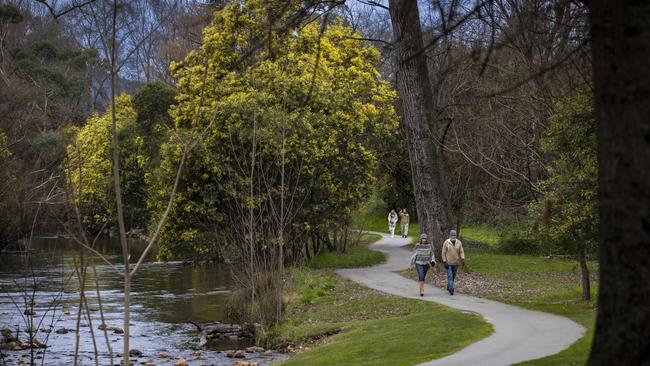
The “Airbnb effect” is causing consternation in this and many other regional areas because the pressure on permanent housing affects everyone. How do you keep your community strong and active with volunteers when one in four homes is given over to short-stay holiday-makers? How do accept a job if there’s nowhere within cooee to live? How do you run a business without workers?
One solution can be found in Bright’s newest high-end restaurant, Pepperberry, housed in the refurbished Hara House on the western fringe of town near the famed avenue of deciduous trees, a major draw for autumn tourists. Head into the restaurant and a fleet of Fijian waiting staff are there to greet patrons with a welcoming smile. Come morning, they’ll farewell guests by name and then begin tidying rooms.
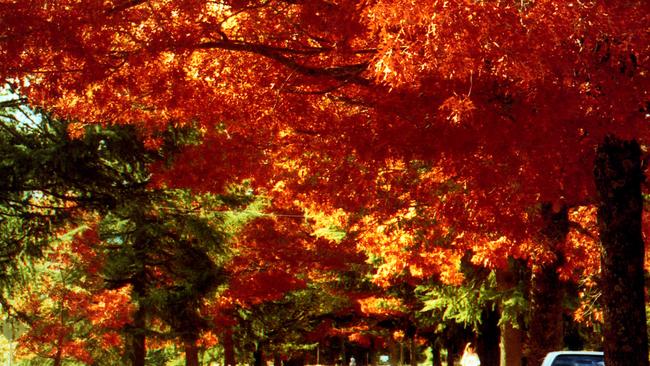
Local couple Shannon and Simeon Crawley made a significant investment in transforming the dated three-star motel into a smart resort-style boutique hotel but realised early on they’d have trouble getting local staff.
“In the 18 years we’ve run the motel, staffing was always an issue,’’ Ms Crawley said. “With things as they are now, we knew we couldn’t get the staff we need locally.”
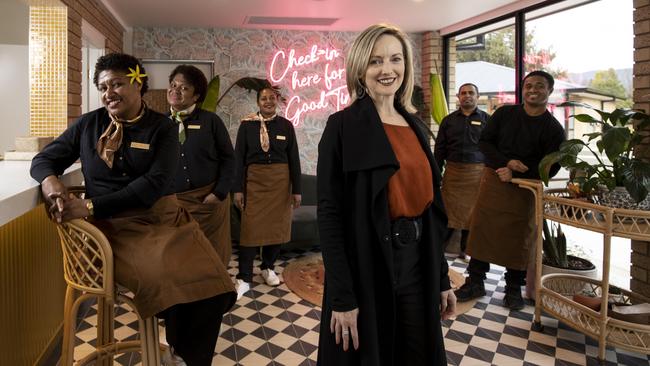
They’ve still not found a hotel manager but through established links with Fiji hit upon an idea, aided by the federal government’s expansion last year of the Pacific Australia Labour Mobility scheme allowing businesses to hire workers from nine Pacific islands for tourism and hospitality.
It paved the way for the Crawleys to employ six experienced Fijian staff on four-year visas. The next issue was staff accommodation and so, like many businesses in town, the Crawleys rent and furnish two homes in town for their workers.
“We do the same thing, rent a couple of houses for staff,’’ said Scott Brandon, the owner of Bright Brewery which employs 80 people. “Most businesses help to facilitate staff finding accommodation because it is such a big issue.”
Demographic shift
Things have changed since Mr Brandon moved to Bright about 20 years ago. It was quieter then, with an older resident population. These days there’s a youthful energy around the town fuelled by well-developed mountain biking and cycling paths along with paragliding, hiking, kayaking and skiing in the mountains.
The brewery, gin distillery, wineries and orchards, and a cafe and restaurant scene reflecting the sophistication of Melbourne dining sealed the deal in making this a place that people wanted to live as well as holiday, particularly since Covid changed expectations of work-life balance.
“What we have at our doorstep is phenomenal and very difficult to find anywhere else in the country,’’ Mr Brandon said.
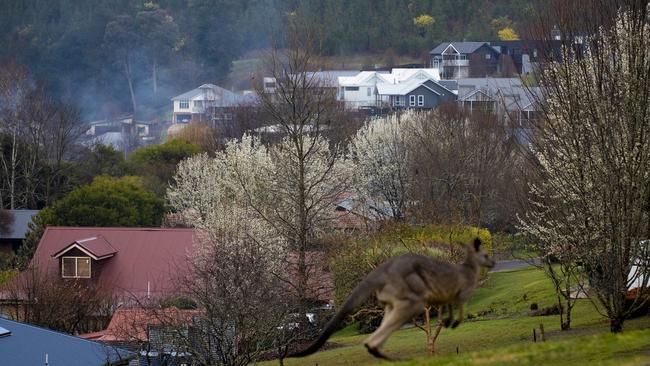
He is also president of the Bright and District Chamber of Commerce which is looking at ways to ease the housing problem without impacting tourism. Finding an option to build affordable housing for seasonal workers would be a start.
“It’s a real challenge,” he said. “When housing prices go up like they have it makes it very difficult for those who are on lower wage brackets to afford to rent let alone buy.’’
Higher-paid key workers such as teachers and medical staff also struggle to find homes. Alpine Shire mayor John Forsyth said: “We’ve had problems with doctors finding accommodation, even one of our directors in Alpine shire had problems. We have people who’ve had to leave the area or because the house or unit they were renting was sold to people wanting to turn it into a short-term rental.”
It’s not clear how many homes in Bright are on Airbnb or other booking platforms. Across the shire, council has 452 residential properties paying a commercial rate but it’s accepted this doesn’t capture all the short-term lettings. The local newspaper recently put the figure at about 900 in Bright and surrounding suburbs.
April figures from data analytics firm AirDNA show the Alpine Shire, of which Bright is the major town, was the second-largest market for short-term rentals outside Australia’s larger cities: 1279 holiday properties (with 58.3 per cent occupancy) compared with Byron Bay’s 1315.
The council has tried writing letters to owners of holiday properties, urging them to consider joining the permanent rental pool. They’ve even asked locals to rent out spare rooms in their homes.
Bright has always had a good portion of holiday homes that owners would lock and leave. With the advent of Airbnb and other short-term platforms, they found a way of making money with good returns, spurring investors to enter the holiday market. Higher yields then encouraged owners to convert their permanent rental properties to holiday homes.
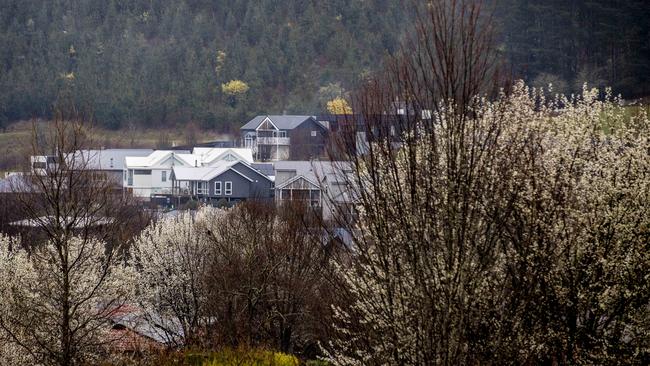
Council’s housing report found that owners using Airbnb were earning 100 to 200 per cent more than they would from offering a long-term lease. AirDNA’s report for April found the average daily rate for Bright’s holiday properties was $436.41. The median weekly rental for a house is $530.
It can be a difficult sell, but Kellie Gray from Dickens Real Estate says she always asks holiday owners if they have considered long-term letting.
“It’s a steady income and you generally know what expenses you will be up for but it’s hard to sway them into a permanent rental,’’ Ms Gray said.
Local mum Annie Brettargh says she has considered calling holiday home owners to ask them to rent out their properties because she is sick of moving.
Ms Brettargh was born in Bright and since moving back to the town with her partner, baker Deejay Timney, she’s seen first hand the struggle to find housing.
“We couldn’t find anything in Bright so after eight months of looking we had to go to Harrietville (24km away),’’ Ms Brettargh said.
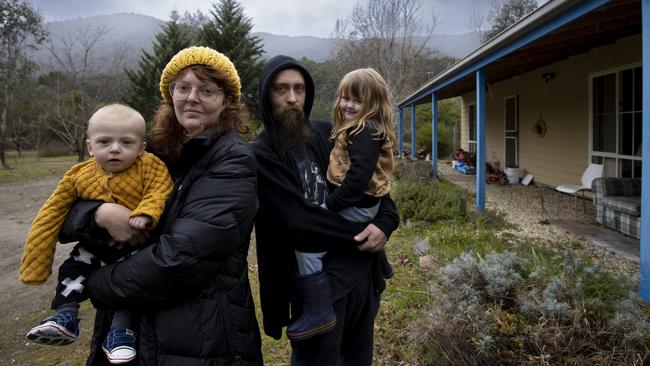
Twelve months on, and settled in Harrietville with their two young children, they’ve been notified the landlord is moving back into that house so they’ll have to uproot again. She looks wistfully at the holiday homes vacant for much of the year or rented to short-term holiday makers.
“It’s very annoying when you drive past these empty homes. Bright was always popular, but never this popular,” she said.
The council is looking at a registration system for short-stay rentals but Mr Forsyth said the council had limited powers to control the industry and was looking to the state government, which is working on a comprehensive housing package.

That other hotspot, Byron Bay, is considering a 60-day annual cap on short-term rentals but Mr Brandon said that was a bad idea for Bright.
“That would mean we would have a couple of months a year when the town was busy because that’s when people would rent their houses out and then rest of year the town would be dead quiet,” he said.
“It could kill tourism prospects for town.’’
There’s no guarantee that houses would even be returned to the rental pool – some might simply be locked up when owners weren’t using them.
On census night in August 2021, a quieter time of year in Bright (summer and autumn are the peak seasons), some 481 homes representing 32 per cent, were unoccupied (compared with the Victorian average of 11 per cent).
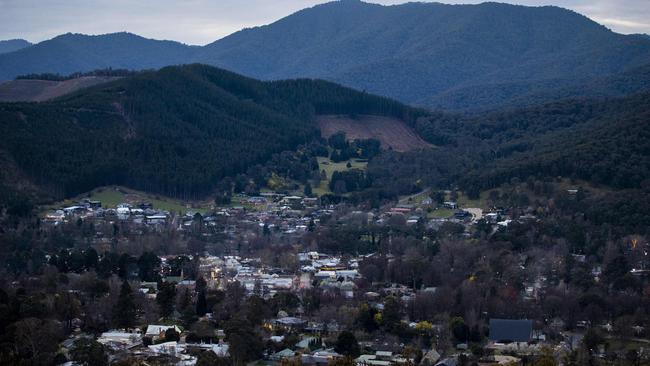
A better option than nightly caps, Mr Brandon said, would be to limit the proportion of Airbnbs by deciding on an acceptable number for the town and blocking new entrants until another property left the pool.
“Maybe you could start with the number of houses already used for holiday rentals – and then if anyone new wants to come into the market another house has to go out,” he said. “That way we still have houses available year round for tourism, but we are protecting the rest of market for long term rentals.’’
The other option is to build more housing.
Growth plans
Bright’s location in a narrow valley surrounded by mountains and pine plantations limits the availability of residential land.
But opposite Hara House, on the western outskirts of town, beside the autumn archway of trees, are signs advertising Bright Valley, an estate for about 350 architecturally designed homes on 40ha of land, to be built by Melbourne-based Deague Group. The plans haven’t been universally welcomed – a number of businesses have signs foreshadowing the arrival of “metropolitan Melbourne to our town’’.
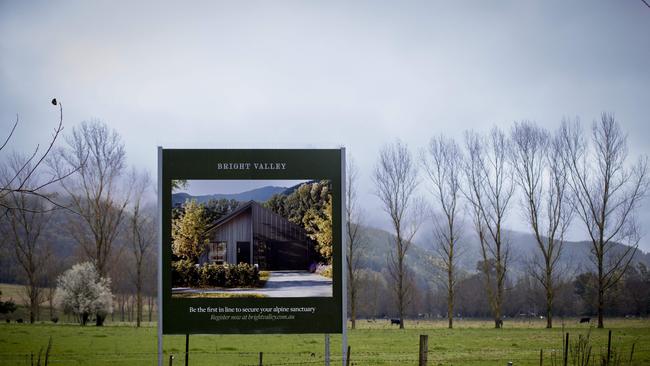
Other residents are concerned the entry to the estate will lead to the removal of a number of mature elm trees that form that famed avenue that brings the tourists to town – a petition to save the trees has more than 27,000 signatures. The Deague group says avoiding tree impacts is a key consideration.
Businesswoman Leanne Boyd ticks off other hot issues beyond the removal of trees: bushfire risk, council approval processes, concerns the new homes would be used for holiday accommodation and do little to solve the town’s affordable housing.
The Deague group did not respond to a request for interview but chief executive Will Deague told realestate.com.au last August that, along with bigger houses, the estate would offer smaller entry-level homes in the range of $700,000 to $800,000, which would entice people in town to downsize, freeing up larger family properties.

None of this solves the short-term housing problem for Luke Savage, the new butcher who lived in his van for the first two weeks in town, commuting 2½ hours home on weekends to see his wife and kids.
He’s got a six-month lease now but is not sure what he’ll do when that is up.
“Looking at the prices here, I can’t see that I’ll be able to afford to buy in Bright,’’ he said.


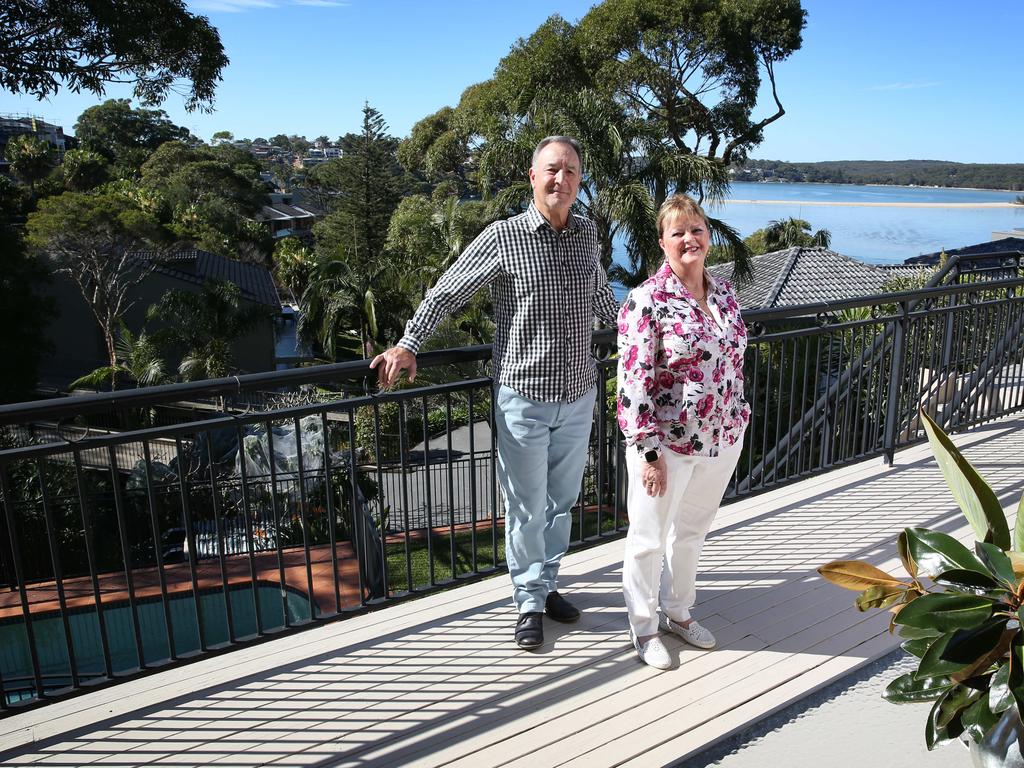



To join the conversation, please log in. Don't have an account? Register
Join the conversation, you are commenting as Logout